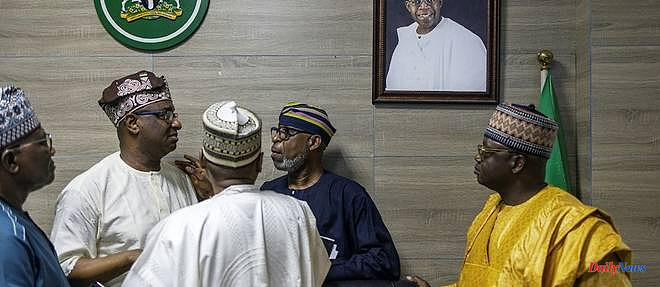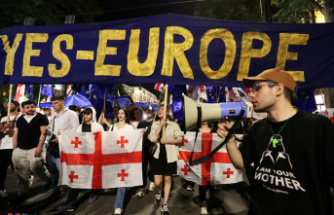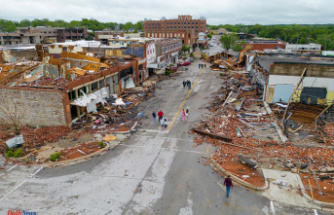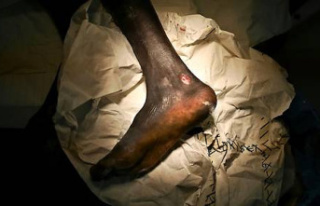The ruling party candidate for the presidential election in Nigeria, Bola Tinubu, was close to victory on Tuesday evening, according to partial results disputed by his two main opponents, who denounce "massive" fraud and demand the cancellation of the poll .
More than 87 million voters voted on Saturday to choose, among 18 candidates, who will have the difficult task of redressing the most populous country in Africa, weighed down by a flagging economy, a strong impoverishment of the population and recurrent violence armed groups and bandits.
This presidential election is one of the tightest that Nigeria has known. To be elected in the first round, the winner must obtain not only the majority of the votes cast, but also at least 25% of the votes in two-thirds of the 36 states of the federation, plus the territory of the capital, Abuja.
The vote took place overall calmly, despite a few security incidents and logistical hiccups.
But following delays in the count, and major failures in the electronic transfer of results, the opposition accused the Congress of Progressives (APC, in power) of fraud.
Before the resumption of the count on Tuesday, the People's Democratic Party (PDP) and the Labor Party (LP) denounced "a sham" election.
"We have completely lost faith in the whole process," they said at a joint press conference, demanding its "immediate cancellation" and the holding of a "new ballot."
According to official results announced by the Electoral Commission (Inec) for 31 of the 36 states and the Federal Capital Territory, Tinubu won 8.1 million votes.
He is ahead of Atiku Abubakar, the candidate of the PDP, the main opposition party, which has totaled 6.4 million votes so far.
The outsider Peter Obi, whose popularity in the youth, who considers him honest and competent, created the sensation, obtained 4.8 million votes.
For its part, Inec castigated the "unfounded and irresponsible" accusations of the opposition. “When they are not satisfied with the result of an election”, the candidates “are free to address the courts”, but they cannot ask for its cancellation before its term, added the commission in a press release.
Nigerians are anxiously awaiting the publication of the results in the rest of the country, especially in large states such as Rivers (southeast), Kano and Kaduna (north).
Discontent was mounting in certain regions such as Rivers, a traditional opposition stronghold, where the count was suspended due to "death threats" against the local Inec official after the announcement of high scores for the APC.
"It's impossible for Tinubu to win even at Rivers!" said 25-year-old voter Osaki Briggs, expressing fears shared by many of his compatriots. "Who does Inec take Nigerians for?".
Outstripped at the national level, Mr. Obi nevertheless narrowly won the strategic state of Lagos, the economic capital, yet stronghold of Bola Tinubu.
The "godfather of Lagos", as the latter is nicknamed because of his immense political influence in the megalopolis which he governed from 1999 to 2007, has not yet commented on the partial national results. But he surprised by acknowledging defeat in Lagos.
Many foreign observers have also harshly criticized the lack of transparency and operational failures. "Confidence in Inec has further diminished" because of the delays in the publication of the results on its site, in particular underlined the delegation of the European Union.
Since returning to democracy in 1999, Nigeria has held seven national elections, mostly marred by complaints of fraud, logistical problems, violence and legal challenges.
Bola Tinubu, 70, and Atiku Abubakar, 76, both Muslims, enjoy a broad base in the north. Peter Obi, a 61-year-old Christian, could count him on the votes of the southeast, his native region.
With its 216 million inhabitants, Nigeria should become the third most populous country in the world by 2050, in a West Africa threatened by democratic decline and the spread of jihadist violence.
The continent's leading economy has become a global cultural power, thanks in particular to Afrobeats, a musical genre that is setting the planet on fire with stars like Burna Boy.
But in the face of immense daily hardship, compounded by recent shortages, many Nigerians are calling for change, sickened by decades of poor governance and an aging and reputedly corrupt elite.
02/28/2023 22:57:41 - Lagos (AFP) - © 2023 AFP












